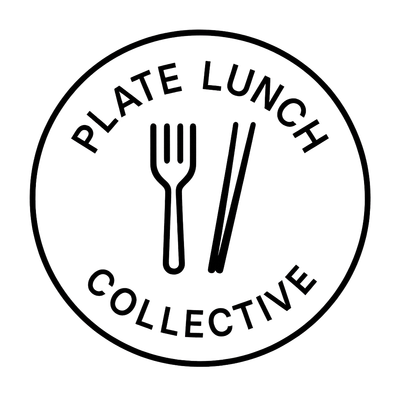What Is Answer Engine Optimization? No One Really Knows.

Preface
In 1990 we used to skateboard behind an AM/PM on the corner of Goldenwest and Heil in Huntington Beach, CA. We'd be there for hours. Waxing the curbs with candles from Pic 'N' Save. Making up tricks and giving them names. Scraping together change for a large fountain soda we could all share. Some names would stick. Some names would not.
The current scramble to define Answer Engine Optimization brought that memory back. Not because the motives were the same—those skateboard trick names came from wanting to build something, to add to the sport in a meaningful way. The AEO rush is pure commerce and professional positioning for financial gain. But the impulse is the same. The impulse to be first.
This isn't a push for clarity. It's a land grab. A gold rush for acronym control. Most of the people naming things right now aren't trying to standardize the field. They're trying to be the first one cited or woven into an answer when someone asks Gemini, ChatGPT or Perplexity.
The Territory Gets Carved Up
You can see it happening in real time—everyone racing to plant their flag in the same patch of digital ground. AEO is just one attempt to name what's happening as search becomes less about ten blue links and more about AI systems that answer questions directly and cite sources.
The problem is, most of these people are still thinking like it's 2015. They're trying to "own" keyword territory in a world where AI systems don't really care about keywords the way Google did. They're focused on being the definitive source for "AEO best practices" when AI systems are more interested in whether your information stays reliable across different contexts.
Look at all the competing terms popping up:
AEO (Answer Engine Optimization) - Making content discoverable in AI-powered direct answers
GEO (Generative Engine Optimization) - Optimizing for how content gets synthesized and rewritten
GSO (Generative Search Optimization) - Content strategy for AI-mediated search experiences
LMO (Language Model Optimization) - Structuring content for clean machine retrieval and reuse
AIO (Artificial Intelligence Optimization) - Broader strategy encompassing trust signals and machine readability
GAIO (Generative AI Optimization) - Variant positioning, sometimes used interchangeably with GEO
CEO (Conversational Engine Optimization) - Optimizing for voice search, assistant queries, and multi-modal conversational interfaces
GSEO (Generative Search Engine Optimization) - Focused on optimizing for Google's AI-enhanced search interface with emphasis on generative search results and AI overviews
MEO / XSO (Machine Engine Optimization or Experience Search Optimization) - Experimental approaches for evolving AI-driven content systems
Most of these distinctions don't actually matter. Whether you call it AEO or GEO or whatever, you're dealing with the same fundamental challenge. How do you make information that AI systems can reliably extract and use without mangling? The acronym differences are mostly positioning, not technical substance.
What does matter is understanding that these systems don't just grab your content and spit it back. They're looking for patterns, relationships, context they can trust. That's a completely different optimization problem than getting a bot to crawl your sitemap.
Each acronym stakes out slightly different territory, but they all overlap. This isn't happening because we need six different terms for the same basic idea. It's happening because being first to comprehensively define something in this space creates lasting advantages—or at least, that's what people think.
When someone eventually searches for guidance on AEO implementation, the early definers become the default experts, regardless of whether they actually know what they're talking about or just got there first. Which is itself a primitive SEO mindset.
If you truly understand how AI systems surface and synthesize information, you know that being first to coin a term matters far less than consistently demonstrating expertise over time.
How Authority Works Differently
Most people writing about AEO miss something important. Everyone keeps using the word "authority" like it means the same thing in different systems. It doesn't.
In SEO, authority is borrowed. You get credible by having credible sites link to you. Google basically says, "We assume you're legit because other legit sites mention you." It's popularity plus proximity plus endorsements. Often gameable.
LLMs and AI systems don't work that way. They want stability plus structure plus repeat presence. Your content needs to be useful every time they encounter it, consistent across contexts, easy to extract without distortion. You can't borrow trust. You have to demonstrate it fresh each time.
That's why citations flow to places like Wikipedia or Mayo Clinic. Not necessarily because they're more authoritative in human terms, but because they're structurally reliable. Easy to pull from without the AI hallucinating or getting confused.
So when people say "LLMs don't care about authority," they're half right. LLMs don't care about the SEO version of authority. But they absolutely care about being able to trust that your information won't fall apart when they try to use it.

What Actually Gets Cited
When an AI system encounters your content, it's not just reading it like a human would. It's looking for chunks of information it can lift out and use elsewhere without losing meaning. If your brilliant insight only makes sense in the context of your specific argument structure, the AI can't do anything with it.
The technical requirements everyone talks about exist for specific reasons:
Modular - Information should function when extracted from original context, because AI systems literally need to drop your content into completely different conversations while keeping it accurate.
Attributable - Clear authorship and sourcing for citation tracking, because when an AI cites your work, it's vouching that your information won't contradict itself if someone checks.
Structured - Schema markup, entity relationships, hierarchical organization that help AI systems understand what they're looking at without having to guess.
Consistent - Reliable accuracy across multiple interactions and contexts, because the system needs to trust that what you said about topic X in January still holds when someone asks about it in July.
This creates opportunities for anyone who understands the requirements, regardless of size or domain age. A small publisher with proper markup, clear authorship, and well-structured content be get cited alongside major institutions.
The old SEO assumption that you need to be Mayo Clinic or Wikipedia to win? That's exactly the kind of thinking these systems don't reward. They care about whether your information is reliable and extractable, not whether you've been around for decades building backlinks.
This is why the acronym land grab misses the point entirely. The people racing to "own" AEO terminology are still thinking like domain authority matters more than actual expertise.
The Compensation Problem
Something weird is happening that traditional marketing metrics don't capture. Your research might power thousands of AI responses without driving any clicks to your site. Your expertise becomes invisible infrastructure for AI answers.
Some organizations have figured this out and started treating AEO as reputation building rather than traffic generation. The goal becomes being known as a reliable source for specific types of information, even when individual pieces of content don't drive direct engagement.
But this creates new problems, if your content disappears into AI synthesis, what's the economic model? How do you get compensated when your work becomes the foundation for answers you never see credit for?
Larger organizations can absorb the cost of producing content that builds authority without immediate returns. Smaller creators face a choice: conform to machine-readable formats or risk becoming invisible.
The Professional Patterns
I've watched this pattern before. Growth hacking, content marketing, social media optimization, each new technical development spawns competing frameworks as practitioners race to establish expertise credentials.
The AEO land grab follows the same playbook. Multiple people coin slightly different terms. Everyone writes definitive guides. Conferences start featuring "AEO tracks." LinkedIn gets flooded with "AEO strategist" titles.
Being first to define something creates retroactive expertise. Unlike traditional fields where authority develops through demonstrated competence over time, digital marketing authority gets claimed through definitional control.
Perfectly logical thinking in 2020, for some. But now: this professional positioning strategy assumes the old rules still apply. Sure, you might get cited in early articles or land speaking gigs by being first to market with an "AEO framework." You'll rank for keywords like "AEO best practices."
The problem is, AI systems don't care that you coined a term. They care whether you have citable proof of actually understanding the technology. When someone asks an AI about optimization techniques, it's not going to prefer your content because you were first to define AEO. It's going to look for demonstrable expertise, consistent accuracy, and structured evidence that your methods actually work.
The people winning this naming game aren't the ones who understand the technology best. They're just the ones who got there first with a catchy framework. And that works great for LinkedIn titles and conference speaking gigs. But AI systems don't care who coined what term.

The Feedback Loop Problem
If I was to have any concerns this early in the game, it’s that bad optimization advice will become standard practice. If marketers lean too hard into strategies that favor institutional sources and oversimplified explanations because some consultant said that’s what AI systems want, those systems will start surfacing more of that content.
Or, I could be completely wrong and stuck in the same trap I'm calling out. Maybe AI is a lot smarter than even the most complex and comprehensive Google updates?
I am watching this unfold in real time. Let's assume I am not completely off base. Here is what worries me. You end up with feedback loops where certain types of knowledge become more discoverable and therefore more influential, while other forms of expertise get marginalized through algorithmic invisibility.
Dissenting perspectives, emerging insights, community wisdom that doesn't fit modular structured formats, all of it becomes harder to surface. Not because someone decided it shouldn't be found, but because it doesn't conform to the technical requirements that make content machine-readable.
What This Actually Costs
The stakes aren't just about who gets to define AEO terminology. They're about who shapes the assumptions that get baked into how we think about content and AI systems.
The winners of this naming game will influence the default frameworks people use when they start working with these technologies. Their definitions become the starting point for everyone else.
But most of the people in this race are solving the wrong problem. They're applying SEO-era thinking to systems that work fundamentally differently. And if their frameworks become the standard approach, a lot of people are going to waste time on strategies that don't actually work.
The real question isn’t who wins the acronym lottery. It’s whether the people who actually understand how these systems work will speak up before the wrong ideas get baked in. Before they become best practices in frameworks, show up in how-to listicles, or end up as yet another recycled tutorial with embedded FAQ schema and a captioned YouTube video.


Member discussion